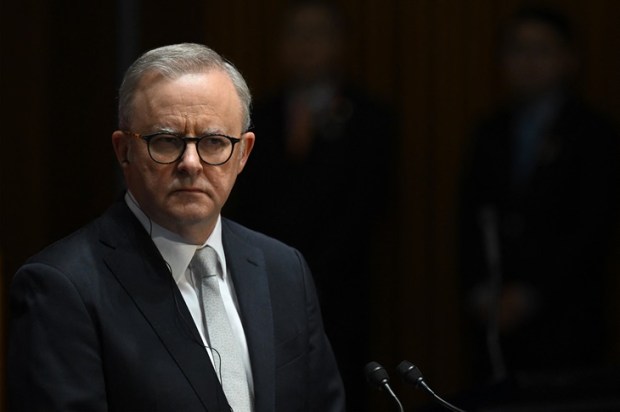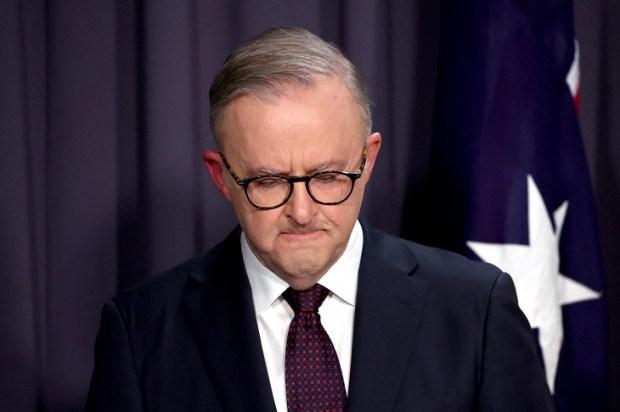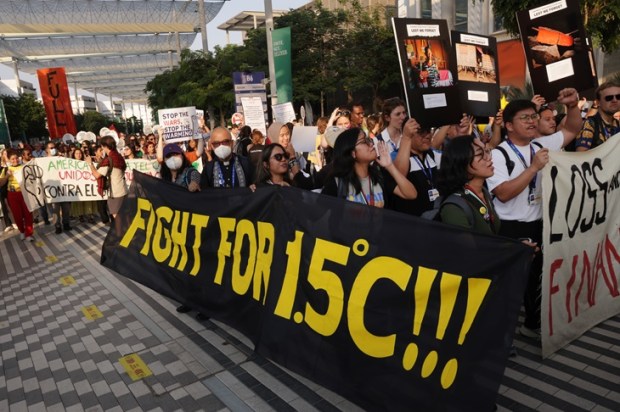At the Press Club last week, Senator Jacinta Price asked the question that I have been asking for over a year. I have asked it in my book, The Indigenous Voice to Parliament – the ‘No’ Case. I have asked it in numerous Spectator Australia and Quadrant articles. I have asked it in letters to, and comments in, The Australian. And I have asked it on Sky News Outsiders and on Save the Nation with David Flint on ADHTV.
Her question:
We are told that it is simply just and advisory body. Nowhere in the question that will be put to Australians, or in the proposed chapter, on which we are voting, do the words advice, advise, or advisory appear. If the Prime Minister truly intended that this body to be a simple advisory body, as he, his government and advocates for the Voice repeatedly tell us, then it would have been stipulated in the proposed chapter.
I had begun to think I was the only one making this point. It seems incontrovertible to me, but on Thursday night, Chris Kenny was having none of it:
This is simply untrue. The Voice is advisory only. Price and the Coalition and their legal advisers must know this. In fact, as I’ve mentioned here before, the only reason the words ‘make representations’ are used is to make doubly sure all the politicians and lawyers and courts know very clearly that there is no obligation on government to act on whatever views come from the Voice. Here’s constitutional law professor Anne Twomey.
‘Well the first draft of the proposal from some time back in 2014 did use the word “advice” and it was considered by some people that well sometimes the conventional thing is that you’re obliged comply with it. For example the Governor-General is obliged to act on ministerial advice. People thought well, that’s not what we intend. We don’t want to put an obligation on the government to comply with the advice and that “advice” was a sort of dangerous word that might give an … implication.’
There you go. Now this is critical. Because the most reassuring, the most factual answer to all the scares run against the Voice is simply to clarify that it is an advisory body only. It cannot deliver anything.
In my opinion, this explanation is risible, as is the example of the Constitutional convention that the Governor-General is obliged to act on ministerial advice. This particular usage of the word ‘advice’ is a special case. It is always cited in terms such as ‘it is a convention of the Westminster system that the Governor-General must act on the advice of his ministers’. This wording suggests that it is an anomalous use of the word advice – the exception that proves the rule that semantically advice is not binding. I suspect that the word ‘advice’ was chosen by courtiers and ministers in earlier days because it would have been thought unseemly to offer instructions to the Monarch. It was merely a polite way of making their wishes known.
But be that as it may, if there were some concern that there might be an implied obligation in the use of the word ‘advice’, that could have been dispelled by using the words ‘non-binding advice’. Or, indeed, by adding a specific caveat that advice issued by the Voice was not binding on government. Would that not make the point more effectively than hoping that the words ‘make representations’ would not also be interpreted as imposing some obligation? After all, as Kenny never tires of telling us, the Voice is ‘subject to this Constitution’.
Let me once again give you the real reason why ‘make representations’ was chosen.
Page 17 of Document 14 (aka The Uluru Statement from the Heart) tells us why:
There was a concern that the proposed body would have insufficient power if its constitutional function was ‘advisory’ only, and there was support in many Dialogues for it to be given stronger powers so that it could be a mechanism for providing ‘free, prior and informed consent’.
The reference to ‘consent’ comes from Article 19 of the UN Declaration on the Rights of Indigenous Peoples:
States shall consult and cooperate in good faith with the indigenous peoples concerned through their own representative institutions in order to obtain their free, prior and informed consent before adopting and implementing legislative or administrative measures that may affect them.
Voice architect Dr Megan Davis is also a co-author of this Declaration. In 2008 the Rudd government endorsed it. It now, arguably, forms part of our common law. And the Voice, if put into the Constitution, would establish a recognised representative institution. The Voice may not be able to make law, but using Article 19, it could certainly force government to remake or abandon a law that the Voice did not like.
Let me conclude with Chris Kenny. He repeatedly says that former High Court judges, and other legal experts, have declared that the Voice will be advisory only, so case closed. Well former High Court Judge, Ian Callinan, has a forceful piece in Wednesday’s Herald Sun taking the opposite view. And, ironically, I suspect he is one that would be more in accord with Kenny’s own views on any topic other than the Voice. Kenny is just cherry-picking his sources. It’s his right to make up his own mind about this but he should not make the claim that his preferred opinion is uncontested.

























